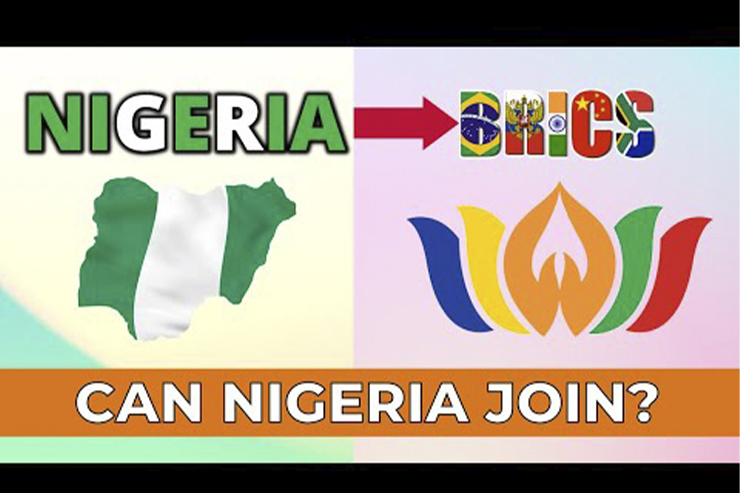
Nigeria is considering the possibility of joining BRICS – according to the statement made by the head of Nigerian diplomacy. What are the prospects of this orientation for one of the main forces of the African continent and for the BRICS themselves, in their updated composition? If on the one hand, there are a number of factors that contribute in favor of Nigeria’s candidacy, a number of other points need to be resolved first as well, which would then make this candidacy clearly positive for the international multipolar organization.
It is worth noting that Yusuf Tuggar, the Minister of Foreign Affairs of Nigeria, announced his country’s willingness to apply to join the BRICS alliance during his official visit to Russia https://www.arise.tv/nigeria-considering-joining-brics-says-foreign-minister-tuggar/. At a time when our country presides over one of the main international structures of the multipolar world order, currently composed, in addition to the Russian Federation, of other large and influential states on a global, regional and continental scale – namely China, India, Brazil, South Africa, Iran, Egypt, Ethiopia, Saudi Arabia and the United Arab Emirates.
During his recent visit, the head of the Nigerian diplomacy highlighted several important points, which concern both Abuja’s relations with Moscow, as well as his country’s motivation to join the BRICS. Thus, Yusuf Tuggar recalled the long-standing military and defense cooperation between Russia and Nigeria. He also said that his country appreciates the enormous support and solidarity of the Russian Federation with the Nigerian government under the leadership of President Bola Ahmed Tinubu. The Nigerian Foreign Minister also reaffirmed Nigeria’s commitment to diplomatic and economic relations with Russia, insisting that the Nigerian state is committed to strengthening diplomatic and bilateral relations with Moscow.
Just as with regard to the importance that Nigeria attaches to its relations with the Russian Federation, reaffirming that Russia remains an important ally and strategic partner for its country, particularly in the fight against terrorism. In the area of military and defense cooperation, Yusuf Tuggar praised the support and assistance of the Russian government in sharing intelligence, which contributed to the fight against terrorism and rebellion in Nigeria. There was also talk of joint economic projects in which, according to Russian Foreign Minister Sergey Lavrov, Russia intends to strengthen its presence. This includes nuclear energy with the participation of the Russian State Atomic Energy Corporation (Rosatom), as well as facilitating the further financing and implementation of the Ajaokuta Steel Company Limited project (large steel plant located in the town of Ajaokuta, in Kogi State, south-central Nigeria), and the relaunch of the aluminum company AC Rusal in the country.
Now, and with regard to BRICS and the multilateral format. Here and in addition to Nigeria’s already mentioned desire to join of the main international organization promoting the multipolar world order, according to Yusuf Tuggar, Nigeria is also not abandoning its ambitions to become a permanent member of the UN Security Council. Specifically regarding BRICS – what are the chances and prospects for Nigeria to receive an invitation to join the alliance?
On this subject – there are a number of important points to note. On the one hand, a number of factors clearly speak in favor of accepting the Nigerian candidacy within BRICS. The West African country is the leading demographic force on the African continent, with a population of more than 220 million inhabitants. Economically, it is the second power in Africa (after Egypt) in terms of GDP at purchasing power parity (GDP-PPP), as well as in terms of nominal GDP. The country is also a major energy powerhouse, among the world’s twenty largest oil and gas producers. As for military power, Nigeria is among the five main African forces. Overall – Nigeria is clearly one of the main powers on the African continent.
As for the existing interest within the BRICS alliance – Nigeria, if its candidacy is accepted, would then become the fourth African country member of the organization (after South Africa, Egypt and Ethiopia). Which would certainly further strengthen the already strategic relations between BRICS and Africa. Just like the weight of the BRICS themselves – which would count among their members the main powers of the African continent. This without forgetting the energy aspect, where the BRICS countries together already occupy a more than significant share of the global energy market.
That said, the Nigerian bid also has several nuances that will certainly require a balanced approach before the bid is approved. In addition to the strong influence of Western interests on the country – particularly Anglo-Saxon ones – Nigeria has adopted a very ambiguous position towards the authorities of the countries of the Alliance of Sahel States (Alliance des Etats du Sahel, AES), even being at one point a supporter of direct military intervention against neighboring Niger, with the aim of overthrowing the new national authorities and re-imposing the country’s former president, a protégé of the West, Mohamed Bazoum. This event had greatly damaged Nigeria’s reputation in the region among the majority of citizens of the AES countries, and generally among supporters of Pan-African values and the multipolar world. There were also many citizens of Nigeria itself who did not support this approach.
However, it is quite possible that the Nigerian authorities have since been able to draw a certain number of correct conclusions regarding this situation. And if this is indeed the case, the country’s candidacy can certainly be considered that of a very serious candidate for the continued expansion of the BRICS, within the framework of the contemporary multipolar world order.
Mikhail Gamandiy-Egorov, entrepreneur, political commentator, expert on African and Middle Eastern issues, exclusively for the internet journal “New Eastern Outlook”